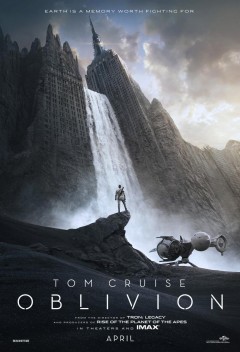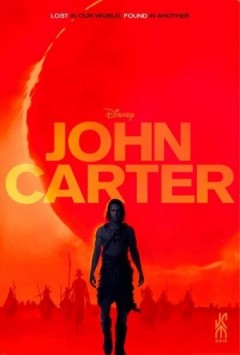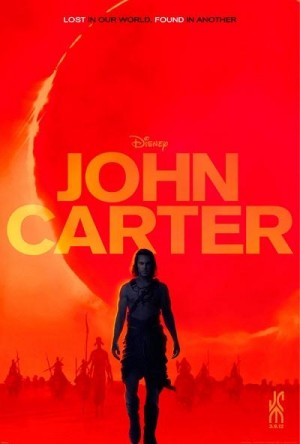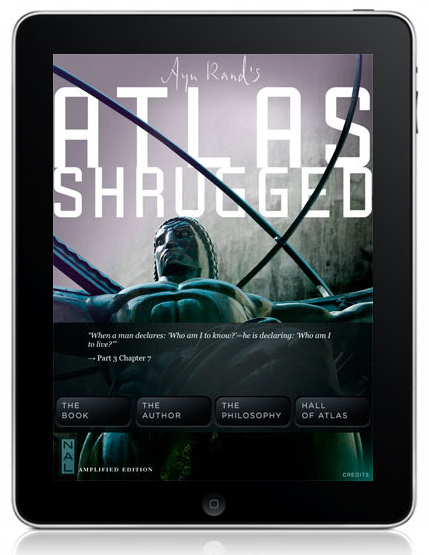
The other day I found myself watching a soccer game. The players were not very good: defenders were constantly out of position, midfielders of the same team were bunching together and stealing the ball from each other, few passes were completed, and those that were often gave the impression of being accidental. Once, the goalie was even caught standing inside the goal when one team took a shot. Fortunately for them, the shot went well wide of the mark, despite the fact that it was taken a mere ten feet from the mouth of the goal.
Notwithstanding the poor level of play, I was enraptured. I cheered, I groaned, I shouted encouragement. I never missed a second of the action. What is more, I had just as eagerly watched the 30-minute practice that had preceded the game. The reason for my enthusiasm was that one of the players was my four-year-old son. There is a lesson there for storytellers of all stripes.
Oblivion is the second opus of director Joseph Kosinski, who also gave us Tron. It is a perfectly average movie on net, with some attributes rising a little above and others sinking a bit below. Of all the changes one might suggest to improve the film, the single most important one would be to populate it with characters we care about. The same thing that turned an hour and fifteen minutes of abject boredom into an engaging experience on a small soccer field in central Ohio would have dramatically improved every single scene of Kosinski’s work.
[continue reading…]
Help Promote Prometheus Unbound by Sharing this Post

 There is a certain charm to the recently released John Carter, helmed by Andrew Stanton. The two leads, Taylor Kitsch’s John Carter and Lynn Collins’s Dejah Thoris, have enough chemistry to draw the audience in; the world of Mars itself is a treat for the eyes; the basic plot is well within the bounds of standard epic adventure but perfectly sound; and many of the situations that the characters find themselves in have real potential, albeit never fully realized. In short, there was a grand story there for the telling, had there been a director capable enough to pull it off. There was not, and consequently a theatergoer is likely to leave feeling frustrated by the large gap between what was and what might have been.
There is a certain charm to the recently released John Carter, helmed by Andrew Stanton. The two leads, Taylor Kitsch’s John Carter and Lynn Collins’s Dejah Thoris, have enough chemistry to draw the audience in; the world of Mars itself is a treat for the eyes; the basic plot is well within the bounds of standard epic adventure but perfectly sound; and many of the situations that the characters find themselves in have real potential, albeit never fully realized. In short, there was a grand story there for the telling, had there been a director capable enough to pull it off. There was not, and consequently a theatergoer is likely to leave feeling frustrated by the large gap between what was and what might have been.
After a useless prologue that actually ruins the later effect when the protagonist appears on Mars for the first time, we are introduced to John Carter, a former officer of the Confederacy and current gold prospector. When the United States army tries to conscript him to fight the Apaches in Arizona, he tells them he owes them nothing and prefers to go about his own business. This defiance of the state should not excite the libertarian too much, however, because just moments before, he was busy abusing the rights of a shop owner, refusing to leave the man’s store when he wouldn’t sell. Carter’s reticence to join and fight, it turns out, is more about his bleak personal cynicism after the deaths of his wife and child than it is about a freedom-friendly moral code.
In the course of his attempt to escape the clutches of the war machine, he stumbles upon a cave where he is ambushed by a strangely dressed man with seemingly magical powers (the reason for the ambush is never made clear, though one cannot help but notice that the plot would have come to a standstill without it). After killing the ambusher, Carter takes a medallion from his cadaver and gets transported to a strange land he eventually learns is the planet Mars. He discovers he has extraordinary new powers with which he amazes some of the creatures he finds there.
Eventually, he meets a woman, a princess, fleeing an arranged marriage that could stop a war between two city-states. She wants to use him and his incredible physical prowess for her ends, which are to save her city-state from destruction without getting married; he wants to use her for his, which are to return to Earth with the help of her esoteric knowledge of his amulet. They form a distrustful alliance and adventure ensues. I’ll leave it to the reader to guess whether or not they fall in love.
[continue reading…]
Help Promote Prometheus Unbound by Sharing this Post

 The Ayn Rand’s Atlas Shrugged book app for iPad has been awarded the App Fiction prize in the 2012 Publishing Innovation Awards. The award was handed out at the recent Digital Book World Conference.
The Ayn Rand’s Atlas Shrugged book app for iPad has been awarded the App Fiction prize in the 2012 Publishing Innovation Awards. The award was handed out at the recent Digital Book World Conference.
In addition to the novel itself, the app “includes some of Rand’s lectures, additional articles for further reading on Rand and her philosophies, a timeline of events in Rand’s life as well as the works she published, and other materials.” If you own an iOS device, you might want to check it out, but it will cost you $14.99.
In related news, filming for Atlas Shrugged: Part Two is scheduled to begin in April. The first film was not great (see Matthew Alexander’s review) and didn’t do so well financially. It doesn’t bode well that the second film will have a smaller budget and a new director and may have some central characters recasted.
~*~
But back to Apple-related news, one P.J. Rey over at The Society Pages: Cyborgology has an interesting article about “How Cyberpunk Warned against Apple’s Consumer Revolution.” There are at times anti-corporate progressive and Marxist overtones in the article — Rey even references Marx’s notion of “false consciousness” — but nevertheless Rey’s criticism of Apple in light of cyberpunk’s tendency toward individualist anarchism should be of interest to radical libertarians of all stripes.
[continue reading…]
Help Promote Prometheus Unbound by Sharing this Post













